Hiking at the Baltic Sea: Allied bombs and real hermits
One million guests a year, nightmarishly crowded beaches, construction boom and long traffic jams on arrival and departure. The island of Usedom is the Germans' favorite sunny island. The island is only 66 kilometers long and 24 wide in the Pomeranian Bay, a money machine for hoteliers and kneipers, often a nightmare for the 76,000 inhabitants who have always made a living from mass tourism since the rediscovery of their home beaches by tourists in Turkey, Egypt and Tunisia but moan about traffic blackouts and high rents.
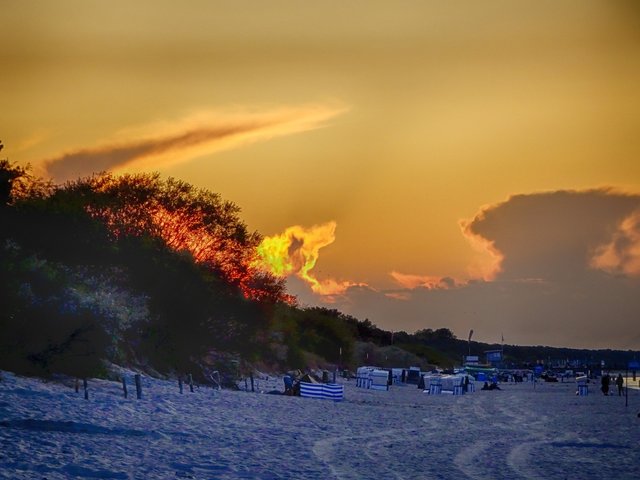 The beach falls into the night.
The beach falls into the night.
If you want to discover the secret side of the isle, you have to immerse yourself in the illegality of a tripby feet that would be forbidden from the first step if a beach bailiff, a police officer or a security officer got wind of it. Hut we try it - read round 1 here, the second hike is here and today wo wake up to go for the next time:
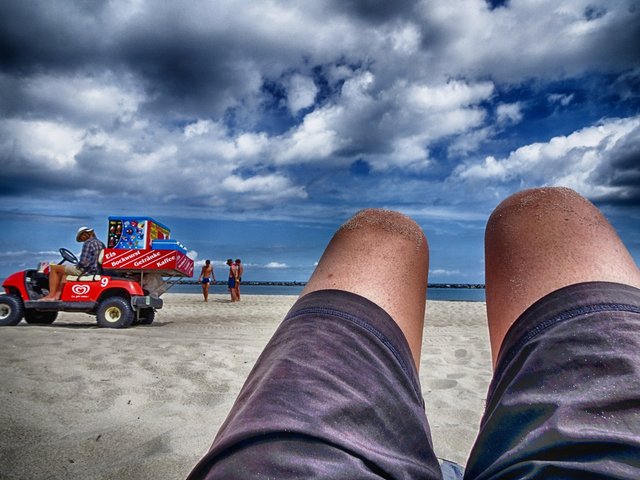 If you are hungry a young boy with an electric vehicle brings german wurst.
If you are hungry a young boy with an electric vehicle brings german wurst.
Not back here just before the restricted area anyway. Usedom is slowly returning to its natural state behind Trassenheide. Karlshagen is still on the edge of the beach, one last raising of the cage for annual holidaymakers and a beach bailiff who lurks in the bushes on the central square with the usual concert shell to demand the visitor's tax from suspects. The end of the Usedom world follows immediately: four kilometers further, the beach becomes wider, the water shallower and the dune forest denser.
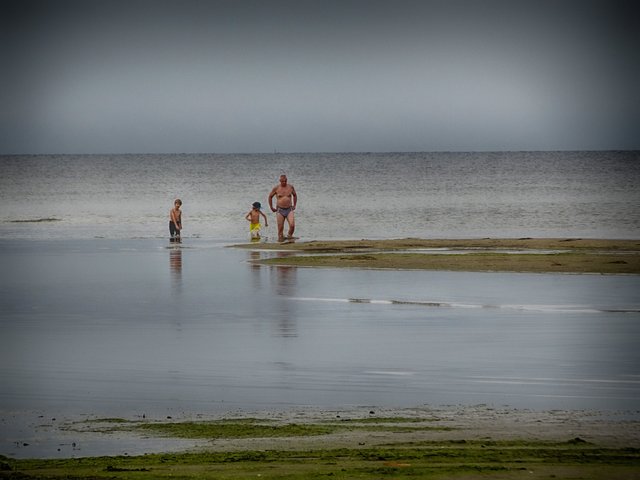 You have a way to go to get wet.
You have a way to go to get wet.
"You can still find peace here," says a local who wants to get into the water again before sunset, just before Haken and Struck how they call the beach here. Behind the last belt of reeds begins the bird sanctuary, which the people of Peenemuende say kills two birds with one stone: "There are still bombs from world war 2 all over the forest that have not exploded," describes the late bather, "they should have cleared everything at great expense if they hadn't put the sanctuary on top. "
Loneliness on tourist's island
In its shadow there is now so much loneliness that an tourist's island like this cannot actually have. But warning signs with "Caution, ammunition, do not enter" have their own effect. The water here is shallower than shallow, you have to walk a long way to dive at least to your knee. A couple of jellyfish swim past, on the other side of the large bay you can see as far as the Polish Kohlberg.
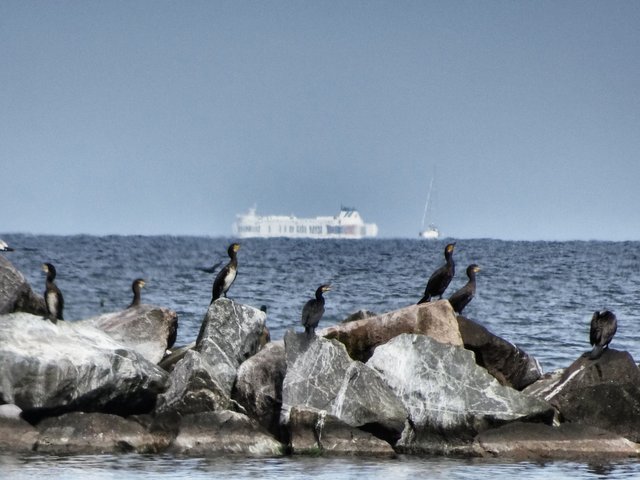 Birds and a ferry on the Baltic Sea
Birds and a ferry on the Baltic Sea
From here is there no further progress on the same way. Through the bird sanctuary, sealed off with new fences and signs, there is no way around the hook, as the last piece of the island is called. If you want to go further, you have to go back to the main street along the old, weathered signs who are warning against entering the ammunition-contaminated areas around the former missile test site of the Wernher von Braun almost eight decades after the end of the Second World War.
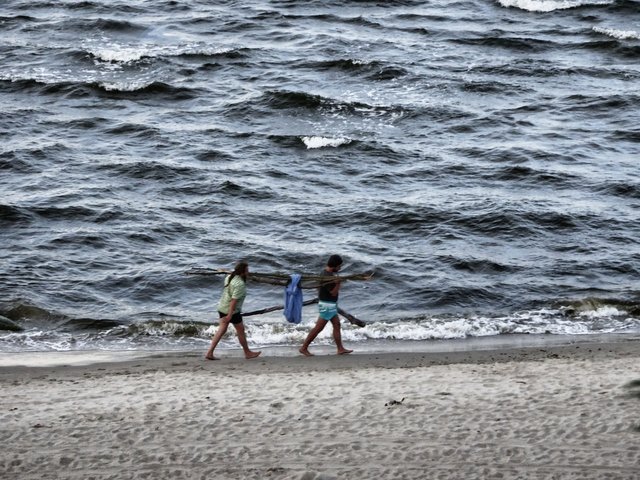 The hermit and his friend prepairing the camp fire
The hermit and his friend prepairing the camp fire
On the way there are even more fences, the man from the village asserts that there are really remains of Allied bombs in the ground that went wrong when the V2 factory was attacked. "Up there," says the pensioner who loves to swim, "there are still parts of the aircraft".
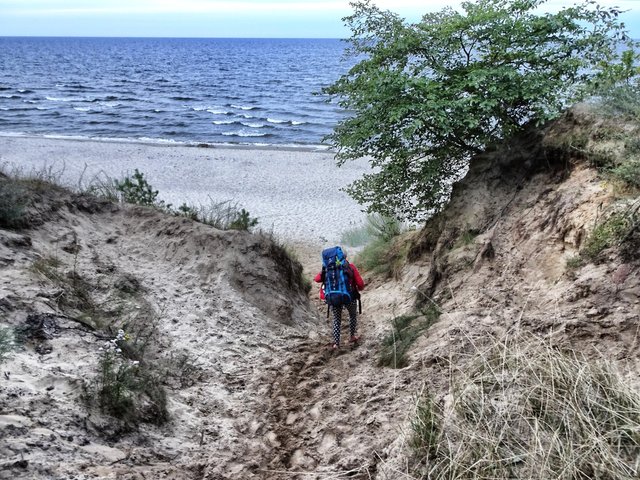 It has hills here
It has hills here
You can also see ruins of military installations, guard houses, barbed wire, bunkers and shell holes. Mossy foundations are left over from barracks. The East German Army NVA concreted wide streets for their heavy equipment. Thousands of young men cried in this forest, they were in tears about a fate that punished them to be a soldier hundreds of miles ways from their beloved. But only the concrete remains on these dark days in a wood with a bright yellow summer sun on a clear sky.
A hermit on a forgotten beach
An encounter with history, outshone by the present. This year, a real hermit lives on the loneliest beach in the whole of Usedom, who has built a kind of tent for himself from pine branches and a tarpaulin. He sleeps by the fire in the evening, gets up with the birds and is now amazed that everyone left him alone, he says. "But I don't do anything to anyone either."
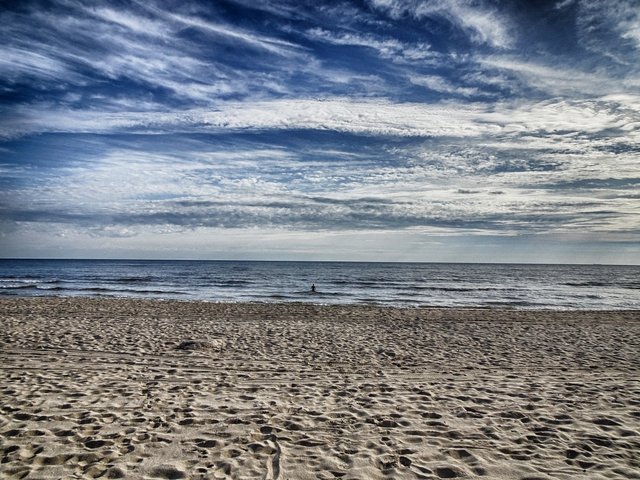 The sea is ours
The sea is ours
Born in Rostock, he moved to Berlin years ago, but has now realized, according to the man in his mid-thirties, that the hectic pace and city life were overwhelming for him for the moment. "That's when I thought of this place where you are only with yourself and nature." As evening falls, the hermit lights his fire, the mosquitoes come and go again and with the darkness a calm rises that could not be deeper.
Thank you for reading and if you like my work please follow me on Hive, Travelfeed or Steem or visit my homepage koenau.de
A few more pictures for you:
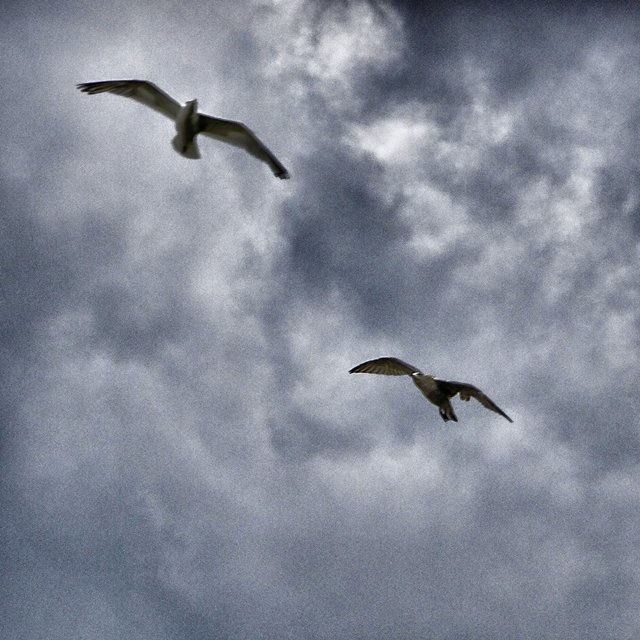 Two birds on a cloudy sky
Two birds on a cloudy sky
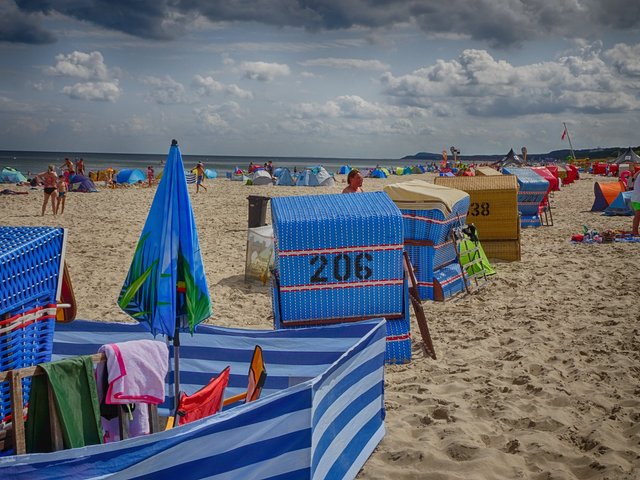 Endless people on the beach
Endless people on the beach
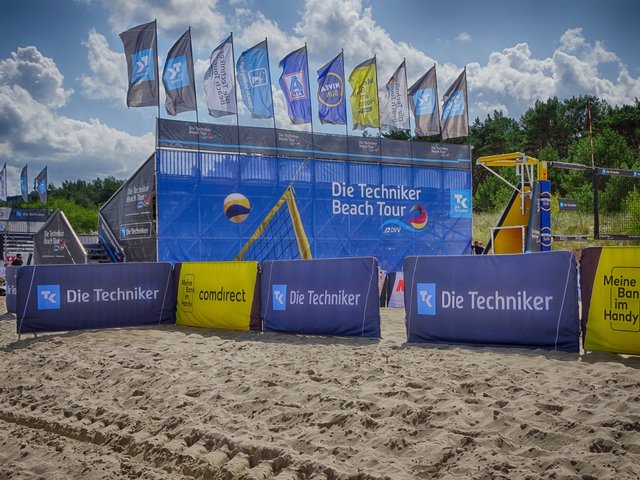 And party everywhere
And party everywhere
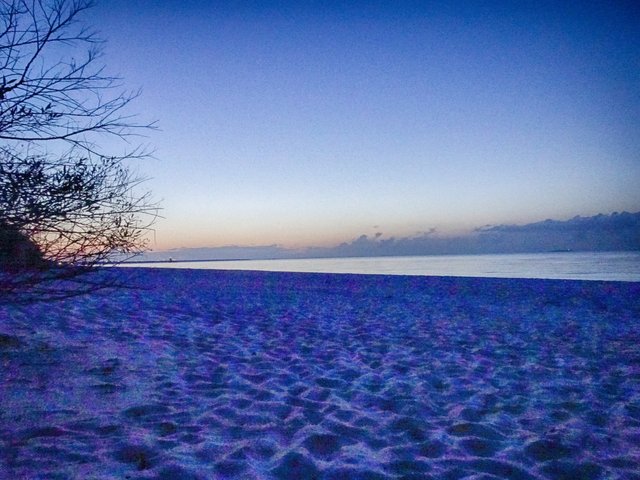 But not on the places we stay.
But not on the places we stay.
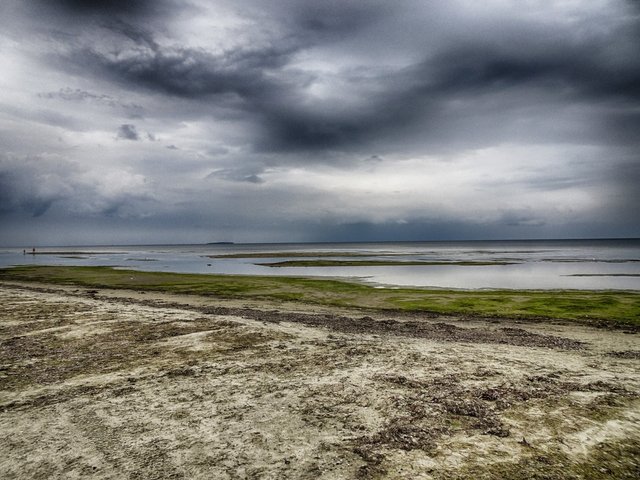
Amazing post / photos :) Cheers :)
Congratulations @koenau! You received the biggest smile and some love from TravelFeed! Keep up the amazing blog. 😍 Your post was also chosen as top pick of the day and is now featured on the TravelFeed.io front page.
Thanks for using TravelFeed!
@smeralda (TravelFeed team)
PS: Have you joined our Discord yet? This is where over 1000 members of the TravelFeed come together to chat. Join us!
Amazing...thanks for sharing your experience!